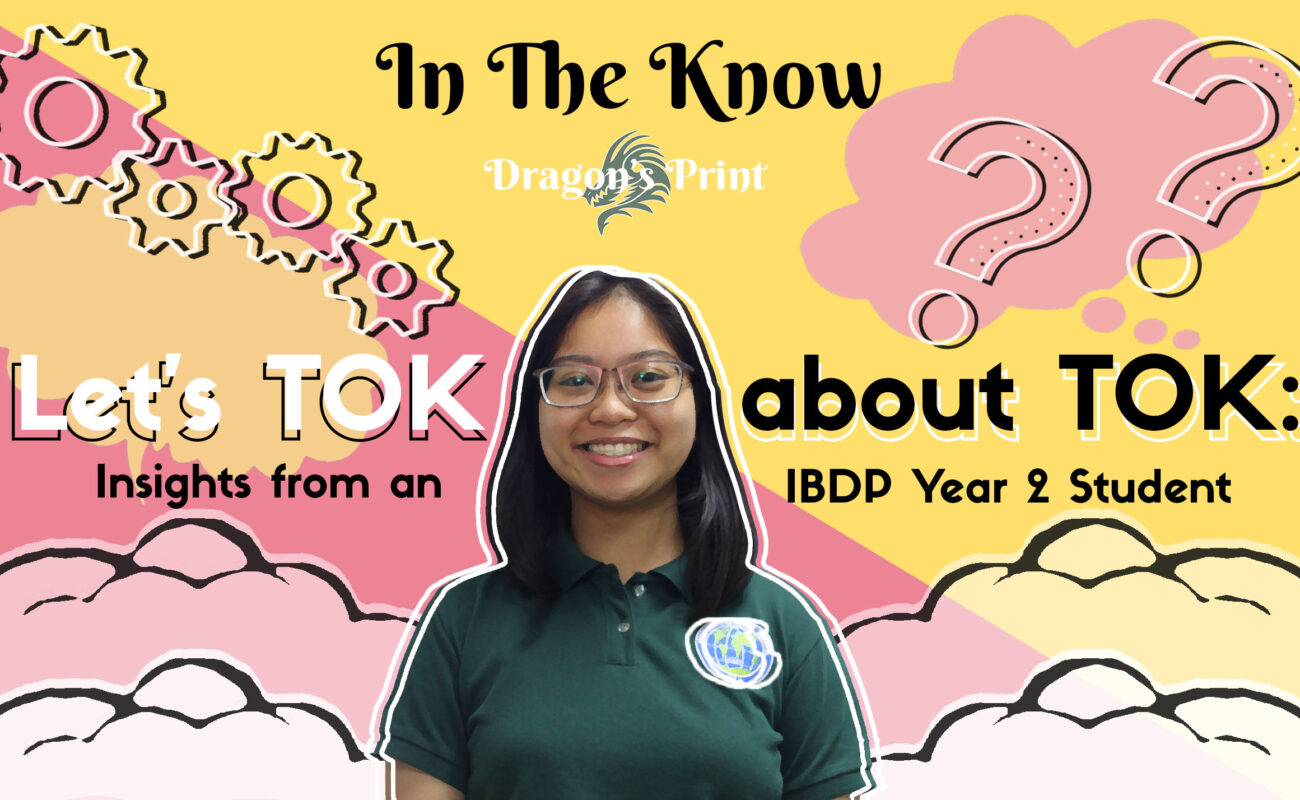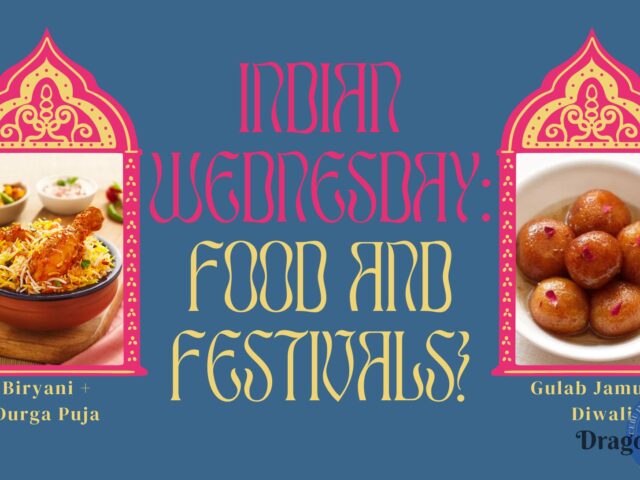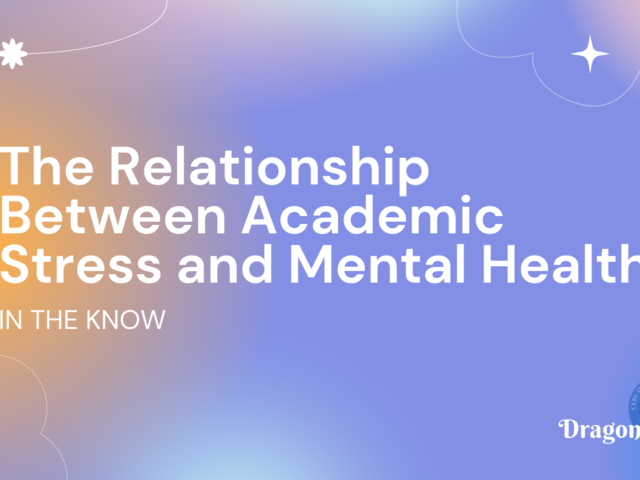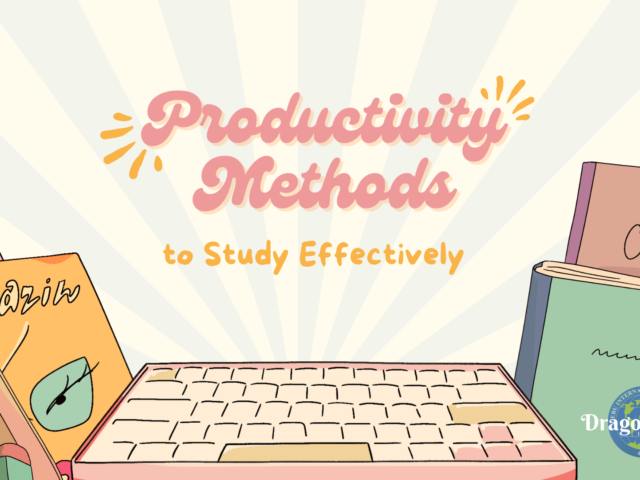If you’re not a student of the International Baccalaureate Diploma Programme (IBDP), you may feel helplessly lost in translation when you talk to someone who’s studying it. For one, there are far too many acronyms to keep track of. You’ve probably heard phrases such as HL, SL, CAS, and EE get thrown around in conversations to varying degrees of distress, but trust me—no acronym is more dreaded than TOK.
So what is TOK, really? TOK stands for “Theory of Knowledge”. It is a core component of the IBDP curriculum and is, essentially, a critical thinking course. In TOK, we are taught to question the roots of our knowledge and expand our current views to accommodate others’ perspectives.
The main objective in TOK is to answer the question “How do you know what you know?”. If that sounds confusing, imagine our reactions when we walked into class for the first time and were told not to expect any objective answers. Up until then, we had been taught clear differences between right and wrong, yes and no, pass and fail. TOK threw all these distinctions out the door and challenged us to think about why we could have various answers to one question. It also required us to reverse the process and formulate our own open-ended questions about knowledge.
Don’t get me wrong—it was disconcerting and very, very difficult. I had never had to think about thinking and know about knowing before, and now I was expected to do so in eight different Areas of Knowledge (AOK), from the Natural Sciences to the Religious Knowledge Systems. I found out that there are eight Ways of Knowing (WOK), including intuition, sense perception, memory, and faith, and I had to use them to make knowledge claims out of news articles that my teachers found online. Knowledge claims are statements that you believe to be true, but how could I make a statement about what I believed was true when I didn’t know what the truth was anymore?
There’s something hopeful about believing that there’s still so much more to learn, so many more perspectives to consider, and so much more room for growth.
It turns out that I didn’t need to have all the answers right away, because TOK places particular emphasis on the development of questions so that they lead you to answers. We are assessed on our ability to not only discuss what we believe to be true but also on our ability to justify our statements with tangible evidence from different AOKs and evaluate viewpoints that may not agree with our own. As a result, when we finally come up with conclusions to our knowledge questions, whether it be on paper in an essay or before an audience in a presentation, we can be sure that they are thorough, credible, and insightful.
However, TOK is not all theory, despite its name. After laying the groundwork for understanding AOKs and WOKs—yet two more IB acronyms—we have to demonstrate that we can apply these concepts in real life. In class, our teachers would open a discussion with a recent news story from anywhere in the world and we’d have to go over its implications in TOK terminology. This generates fascinating conversations ranging from the purpose of advertising, to the role of emotion on judgment, to the future of artificial intelligence. And because we have become familiar with several subjects and approaches, we are able to make interdisciplinary connections that link past to present and imagination to reality.
As I settle into my second year of TOK and the IBDP, I wish I could say that I am now well-versed in all the Areas of Knowledge and Ways of Knowing and can easily pick apart any article or opinion. But I’m not and I can’t—yet. Nevertheless, after having had my assumptions tested relentlessly for the past year and a half, I think I’m pretty prepared. There’s also something hopeful about believing that there’s still so much more to learn, so many more perspectives to consider, and so much more room for growth.
And I know for a fact that that’s true.
Good luck to the seniors as they begin TOK Presentations next week!
Article by Axelle M. (Grade 12); Feature image by Katrina R. (Grade 12)
The views expressed in this article represent the personal views of the author and should not be taken to represent the views of Dragon’s Print and Cebu International School.
![]()




Ms. Justine
Very well written, Axelle! You made me understand more about your experience with the TOK.
Mr. Horne
I’m gonna be a risk-taker and say I think the odds of you doing well on the presentation are pretty good … also, as of two minutes ago this article is now required reading for all grade 11 TOK students.
Ms. Kohlmeier
Your article is inspiring and gives me hope too. TOK should be a required course for high school students worldwide and adults as well, for that matter. We should never stop learning nor close our minds to others’ perspectives. Thank you for your insights.
Venise Taboada
If you can TOK the TOK then you can WOK the TOK! Good luck, seniors~!
Reina Yamaguchi
Thank you for this. I’m rooting for all of you! Good luck with your presentations!
Justin Sandoval
Thanks for the clarifications
Youngju Kim
It is a very eloquently written article! I think it is inspiring how willing you are to learn about the different perspectives. It is interesting how TOK is an area in which you can not “finish” learning. I hope the seniors ace their TOK presentations! 🙂
Masako Murakami
Your article was great! It helped me understand TOK better. As a first year IB student I still don’t know all the Areas of Knowledge and knowing there are eight in total adds more pressure plus the TOK presentation that we will have in the future.
Stuart Brenner
Thank you for writing the article, it was a really nice read. Good luck with your presentations!
Miguel Quebrata
This is an insightful article. I wish the best of luck for the seniors in their TOK presentations!
Sophie Ewart
Great article! Thank you for taking the time to explain what TOK is, and why it’s important to study it. Good luck with your presentation, you’ll do great!
Ikaia
This is like the orientation to TOK I’ve never had. To be honest, I still don’t know what I’ve gotten myself into, but after reading your article I think I now have a firm foot in going forward. It was a really comprehensive read, and thanks for taking your time to give us this. I pray all the Grade 12 do a great job.
Romana Lemos
The article was amazing! We wish you guys all the best in your presentations!
Kimberly Chua
Thanks for this wonderful article. It is very informative and inspiring. Wishing you guys all the best for your presentations!
Miggs Galbo
This article gave me a great insight into what there is to come in TOK. Best of luck in your presentation!
Joeven Karl
As a Grade 11 student who has sold his soul to the IBDP, your article is a guiding light that has inspired me, and I know that it will keep on inspiring the batches to come. I wish you and all the seniors all the luck for your TOK presentations.
Russell Greene
I think we should do more subject-specific articles such as
“Being Lit in Literature”
“The Business of Business Management”
&
“Extending into the Extended Essay”
Dana Te
Great article to read! Very informative and knowledgable, wishing you guys success in your presentations!
John Abrams
This is an example of the high quality students that this school can produce. What thoughtful perspectives!
KC Reed
Great read! I learned a lot more about TOK.